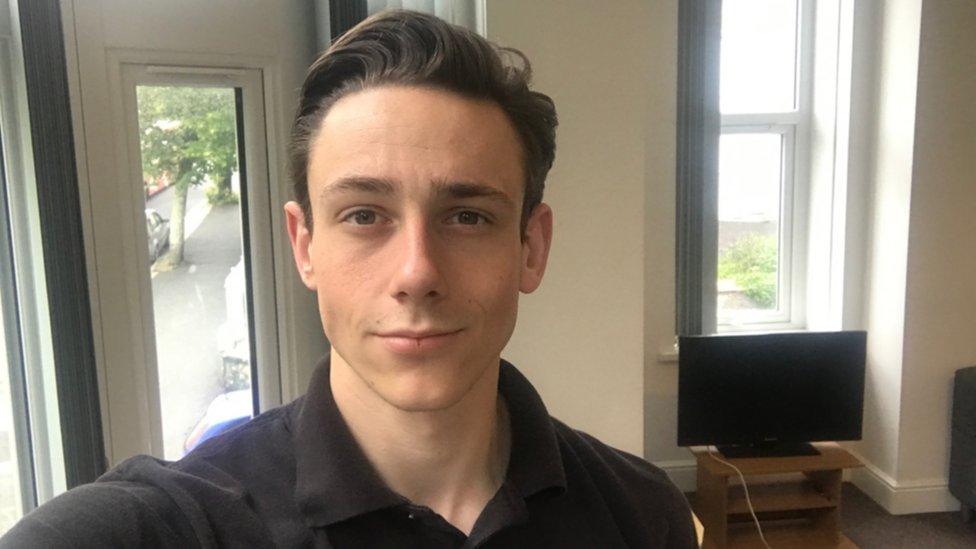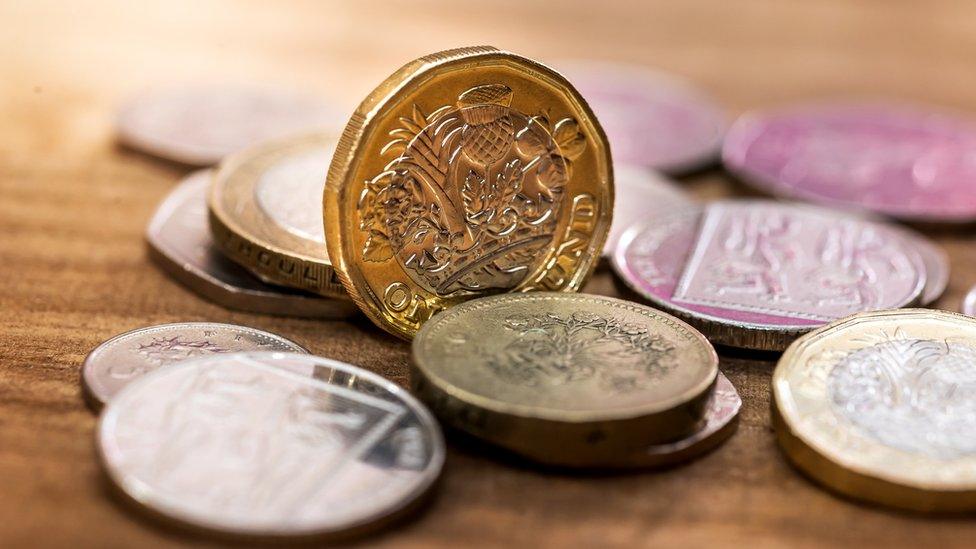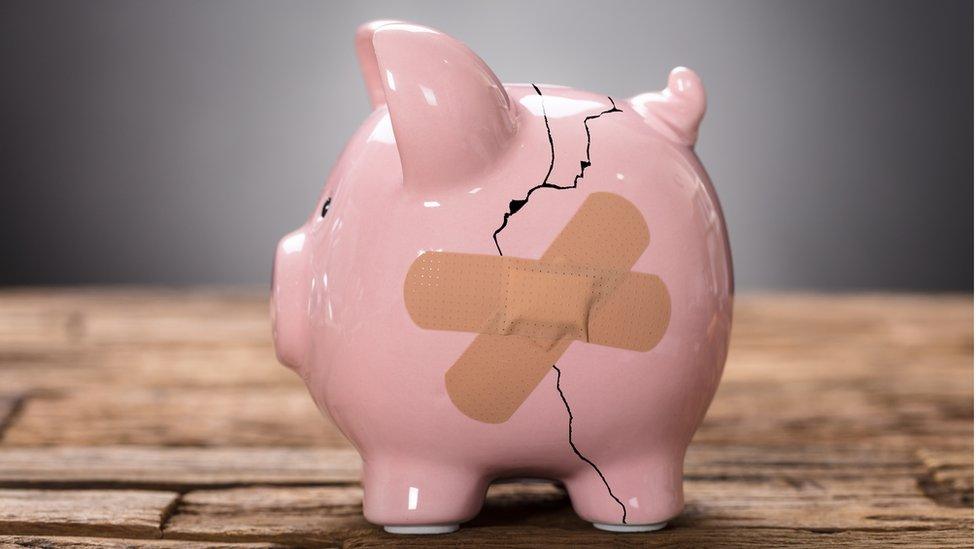'You can get your money when you need it'
- Published

Jacob Cushley works in a Stonegate pub in Plymouth. He is one of 125,000 UK workers whose employer lets them access part of their salary as they earn it rather than waiting for payday.
"It's helped me out with being able to do things socially and also with some unexpected bills," he says.
"It's reassuring to know you can get your money when you need it."
Wagestream, the firm behind the Stonegate scheme, is in talks with NHS trusts, local authorities and the Army.
It says hundreds of thousands of public sector workers could be given early access to their earned income in the next 12 months.
Workers whose employers sign up to the scheme are given an app that shows them how much they have earned throughout the current pay cycle and how much they can withdraw early.
Their employer decides what limit to place on withdrawals, to ensure staff still have money coming into their accounts on payday.
It's a scheme designed to help workers avoid high cost credit like payday loans and overdrafts. For Jacob, it stopped an unexpected bill becoming a damaging debt.
Half way through the month his phone stopped working, meaning he could no longer use his digital bus ticket. "I had to get a new bus ticket to get to work, which is about £78," he told BBC 5 Live's Wake Up To Money.
"That's quite a lot of money to come up with out of nowhere when you budget your wages throughout the month and you're getting to that halfway point where you've overspent on luxuries already.
"Wagestream helped me afford to get into work when I was stuck instead of taking out a payday loan or something, which is what I would have done."
'There's a need'
The fintech firm, which launched last year, charges employers around £1 per employee per month for access to the scheme and then charges staff a fixed fee of £1.75 each time they make a withdrawal.
It covers the payment to the worker and then recovers the money directly from that worker's next pay cheque.
"We get a higher amount of withdrawals in the final 8-10 days of the month," says Peter Briffett, CEO of the start-up. "That's when the payday loan companies start advertising too.
"When we roll out Wagestream to a new company, we will typically see 40% or 50% of the workforce adopt it in the first few weeks. That shows there's a need."
Bad habit?

Getting access to your salary early could create bad habits, warns Kara Gammell
Not everyone thinks this is necessarily a good idea for struggling staff. Kara Gammell, the journalist behind the blog Your Best Friend's Guide to Cash, has concerns.
She says: "Technically this isn't a loan; there's no credit and no interest but rather it's early access to your own money in return for a small fee, so it may seem affordable. But it could be a bad habit to get into as you'd always be playing catch up with your money
"As most of our household bills are paid monthly, consumers run the risk of finding themselves short come payday, and missed payments can jeopardise the security of your family and the roof over your head."Others agree. Wagestream is supported by a number of social enterprises and charities, including Fair By Design, an organisation working to end the poverty premium, and by the Joseph Rowntree Foundation (JRF).
But Helen Barnard, deputy director of policy & partnership at the JRF, believes the system is helpful for workers: "What we've seen in the last few years is a rising tide of in-work poverty. More than 4 million workers are in poverty.
"A lot of those people don't have savings so if they have an unexpected bill in the middle of the month then they can get really stuck and get pulled into the spiral of high cost credit, they have to take out credit which then has charges which they have to pay back the next month.
"The idea of Wagestream is that it gives people access to their earnings once they have earned it rather than waiting until the end of the month, which helps them avoid that high cost credit trap."
'Safety net'
Jacob Cushley also believes his employer has enough protections in place: "I feel like for some people it might be tempting to just get your money early and spend it on socialising but there's a safety net.
"If you're weak and your friends are egging you on to come out and you do decide to dip then you're only allowed 30% of your earnings to date and you're only allowed to take out three transactions a month.
"It's a reassurance that you have money to get you through the month - and not just a small amount - and there's no charges on top or interest either."
With more public and private sector employers signing up, thousands more workers will soon find out if this helps them budget or encourages them to spend.
You can hear these interviews and more analysis by downloading BBC 5 Live's Wake Up To Money podcast
- Published15 May 2019

- Published7 June 2019

- Published12 April 2019
